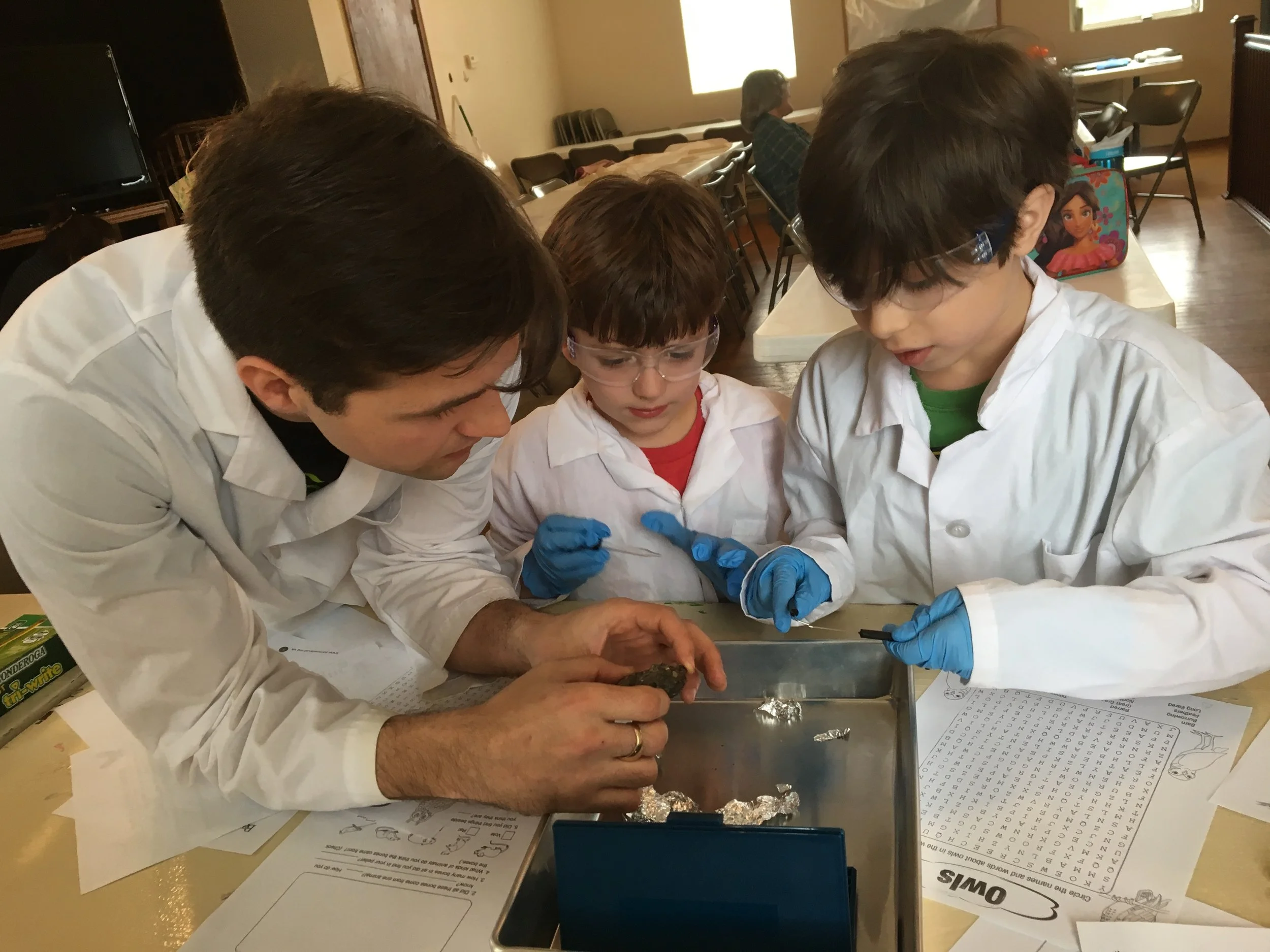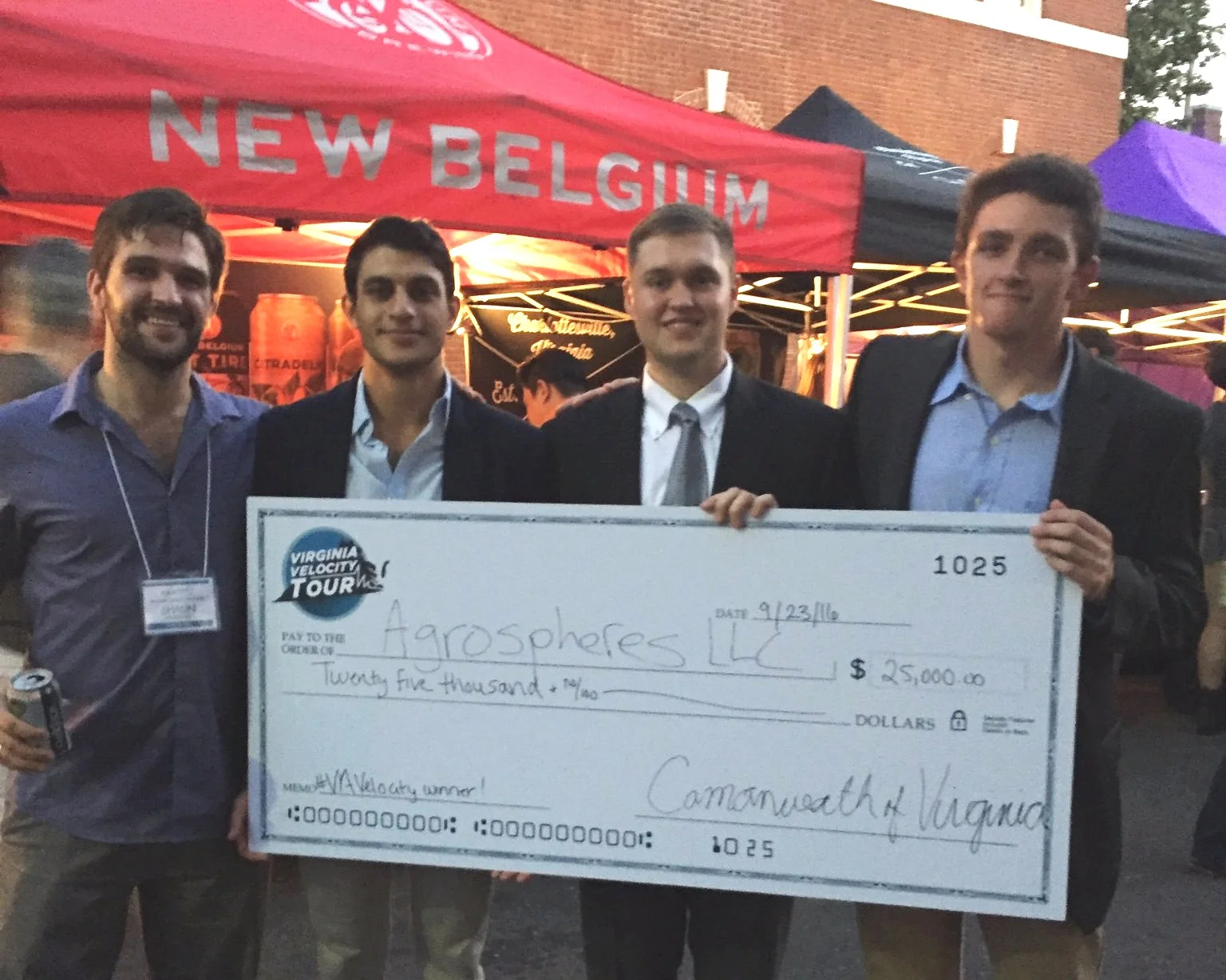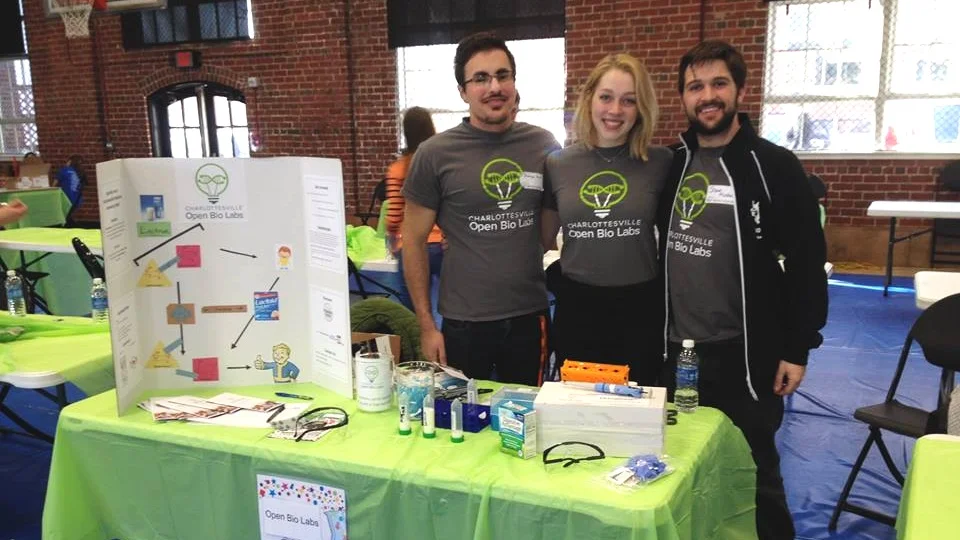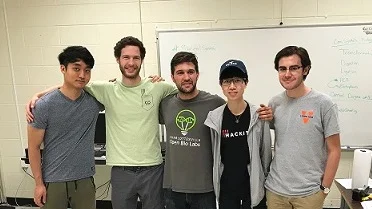The winding path of an iGEMer
Shaun Moshasha and the Story of the Resilience he Nurtured in iGEM
Written by Shaun Moshasha
It was in the Spring of my fourth year of college when I stumbled upon an event titled “Ethical Issues in Synthetic Biology.” My attention was immediately captivated. From the time I first saw Craig Venter talk on Fora.TV when I was 19 years old, I thought synthetic biology and genomic sciences as a whole was quite possibly one of the coolest concepts ever. As soon as I saw that video, I immediately researched into Dr. Venter and applied for an internship position at JCVI, and I immediately received a rejection letter. Oh well, I thought it was time to move on! I proceeded to attend my community college, was accepted into the University of Virginia, and hadn’t given synthetic biology too serious of a thought.
In 2010, I was randomly perusing the UVA web of sites when I stumbled upon the page for UVA’s iGEM team. I had never seen such an organization before and my curiosity that had been piqued years before had once again been titillated. Searching for hours through that website, I finally found the contact information for somebody who was associated with the team. Unfortunately, my email never received a response. Forlorn, I thought the team had disbanded. Imagine my surprise when two years later, the “Ethical Issues in Synthetic Biology” event was being hosted by this very same iGEM team! I couldn’t hold back my excitement.
I’VE BEEN SEARCHING FOR YOU FOR TWO YEARS WHERE HAVE YOU BEEN AND HOW CAN I BE PART OF THIS?! My enthusiasm might have startled the poor aspiring scientist coordinating the event as she politely took a step back and responded that the team had been established and I could apply next year. Soon after, we exchanged emails in which I asked again how I could be a part of this. The response was the same. I moved on. If they didn’t want me to be a part of the team I couldn’t force them.
By that summer, I was searching frantically for a lab position. Being a 4th year undergrad in Biochemistry and moving into my 5th year, I figured I should probably have some lab experience before I graduated. In addition to emailing over 100 professors in various departments of the university, I also sent the iGEM team one last email essentially begging to be on the team:
“This is exactly where I need to be and I only have one year to do it.”
Although I received the same response to apply the following year, I was also told that a couple members had dropped out for this year’s team and they could use a couple extra sets of hands in the lab. That was it, that was my in. As my momma always said, “the squeaky door gets the oil.” I proceeded to quit my job as a pharmacy tech at a prestigious private pharmacy, moved down to Charlottesville, and slept on my friend’s couch for a month to capitalize on this opportunity.
We spent 2012 building a diagnostic system for bacterial infections by leveraging the natural specificity of the bacteriophage with the sensitivity of the household pregnancy test. With this device that didn’t need electricity, clean water, or any lab tools, we could revolutionize diagnostics for millions of people across the world. I had a purpose! I’ll never forget the exhilaration that was coursing through my veins as I went to my first iGEM competition. These were some of the smartest people in the world doing some of the most incredible projects that could fundamentally reshape our interaction with nature. Additionally, every single person I met was kind and humble! It was an unforgettable experience that played a pivotal role shaping me into the person I am today.
Our team ended up getting to the top 4 projects in our region and was awarded the prize for best experimental measurement. When I returned to Charlottesville, I learned about an entrepreneurship competition hosted by our school. High from the excitement from iGEM, I enthusiastically suggested to my team that we apply to the competition. The response was lackluster: “We’re scientists, not businessmen.” So I said forget it I’ll do it anyways! Needless to say, their curiosity was piqued when we were accepted into the semifinals and grew when we won the semifinals, until they were downright exuberant when we won the whole competition! I suppose it helped that along with the adoration, we received a nice $20,000 check from our school! Within six months, iGEM allowed me to transition from a wandering soul to a scientist/entrepreneur with passion and purpose.
With our bacteriophage based diagnostic we called PhageFlag, my team was able to raise $250,000 over the course of two years in non-dilutive grant funding from our school, which enabled us to continue R&D. I had graduated and was accepted into the McIntire School of Commerce at UVA for my Masters (McIntire is one of the best business schools in the country, and I only received a 2.71 GPA from my undergraduate degree. I suppose winning the entrepreneurship competition somehow played into my acceptance)! While I was continuing R&D on PhageFlag, I was the only team member from the previous year that was also part of the following year’s team, although I played more of a team leader/managerial role this time around. After the iGEM competition, we presented our project, Minicell Therapeutics, to the entrepreneurship competition at UVA again, this time winning 3rd place.
I started to think I had a knack for this whole translational research thing. Simultaneously, I wondered why other students from my university had yet to start biotech companies while the entrepreneurship theme in other disciplines was beginning to thrive. Somehow, we had figured it out. I began dreaming of a massive center in which we had a laboratory and would teach science and business, and spin out companies and be this massive factory that would churn out innovation that could help the world! But how in the world was I going to build this thing? After consulting many many people within the university and beyond, I decided to first focus on what I knew best: developing concepts and helping them get enough traction and momentum where they could sustain and grow themselves. I pitched the idea to Alex Zorychta, one of my PhageFlag teammates as well as Ian Rahman, one of my commerce school mates, and the organization BioTrep (Biotech Entrepreneur) was born. Our first class of students was in the Spring of 2014, where 15 students were gathered in a room with us as we progressed step by step through how to build a project and build the use and business case around it. From that organization, two businesses grew out of it that are still alive and thriving today, and have raised over $8M cumulatively: Contraline and AgroSpheres (the reincarnation of the 2013 iGEM team’s project Minicell Therapeutics).
All the while, I was still associated with the iGEM team, this year as an advisor to our team. I knew this organization was special and it wasn’t something I was going to let go. When I went back to the competition in 2014, I met Ellen Jorgensen and discovered the next pivotal concept that has transformed my life: DIY Biology and the rise of Citizen Science.
That year, I learned about the existence of the DIY Bio Laboratory. It’s a makerspace for science. I was flabbergasted. This was everything I wanted: science, business, and AUTONOMY! I wanted to join one so bad, but there were none in Charlottesville. So there was only one thing to do, I had to build one. During December 2014, I established a meetup page to gauge the interest for a DIY Bio laboratory in Charlottesville. I hosted a meetup every other week until by May the online group had grown to over 100 people with an average of 15-20 attendees every meeting. Success: there was interest and there was excitement!
Things were going so well, until that summer. PhageFlag, our flagship project that had launched me into the world, had exploded. There was an irreconcilable misalignment of vision between some of the team’s founders that ended up in disaster for us all. By the end of June 2015, I would be unemployed. I had to make some decisions and fast. On one hand, one of my advisors had offered me an international business development position in a small and rapidly growing biotechnology company. On the other hand, I had this nebulous concept for a community science space and a population of people that were interested in this weird new world of DIY Biology.
PhageFlag broke apart and our trio of student team members went their separate ways. Rachel Smith went on to become a student of Neri Oxman’s in the MIT Media Lab. Alex was hired by UVA to begin an undergraduate innovation hub called Works in Progress. Within 3 months of unemployment, I had developed a rough sketch for what this business was going to look like, registered a company, and leased a space. Open Bio Labs was born. It was everything I was looking for: synthetic biology, autonomy, decentralized networks of learning and project development, global impact, the hacking mentality, and much much more. Now the only small, tiny, insignificant question was, how in the world was I going to actually make this work?
Open Bio Labs, as well as other community labs, have so much potential to transform their community. But how was the space actually going to be used and who it was going to be used by? Various niches within the community could benefit, including undergraduate students wanting to play in lab, graduate students and professors that wanted to start their own company outside the umbrella of the university, professional scientists that wanted to tinker around on their own concepts, and K-12 students that needed more hands-on science experience. I had no idea which direction to go in that would allow the lab to sustain itself and grow, so I tried them all! After a year and a half of exploring the market, it turned out all avenues had the potential for success. However, the K-12 education component stood out as the most impactful and rewarding and with the highest chance for sustainability.
The following year, Open Bio Labs was transformed into Charlottesville’s Education and Entrepreneurship laboratory. Our methodology of Learn>Build>Grow is a pipeline that transforms students into biotechnology entrepreneurs. We have worked with hundreds of students conducting classes, workshops, and field-trips, providing mentorship and guidance, and educating the public on the role of synthetic biology and DIY Biology in transforming our world. We have worked closely with the University on various projects to promote synthetic biology within the University. We have worked closely with schools to provide opportunities for their students to familiarize themselves with synthetic biology. We have taken the initiative to coordinate all the various DIY Bio groups in Virginia by creating the Virginia Coalition of Community Labs. Lastly, we have proven out our Learn>Build>Grow pathway by growing a company completely from scratch inside Open Bio Labs: Kombucha Biomaterials is transforming the way we produce materials by leveraging the byproduct of Kombucha fermentation to create high value materials such as tree-free paper and animal-free leather.
It’s 2018 now, and the vision I had back in 2013 is finally materializing. I have every year since participated in iGEM as a judge, and every time I come back with more opportunities, a renewed energy, and deeper friendships. iGEM and synthetic biology has become my world and has allowed me to thrive. My goal is to enable this same pathway for as many people as possible so they can also find the sense of purpose that I found. My goal is to coordinate a network of community labs around the world that can empower people to actually act upon and execute their wild dreams of how to make the world a better place. My goal is to facilitate intense dialogue as we wade through some of the toughest issues at the convergence of technology and society, so that we can avoid destroying ourselves and move forward as a cohesive whole. My goal is to make everybody an iGEMer, because this is who we are.
The iGEM Digest is a collection of stories from the iGEM Community. More information on the iGEM Digest can be found here: after.igem.org/page/igem-digest











